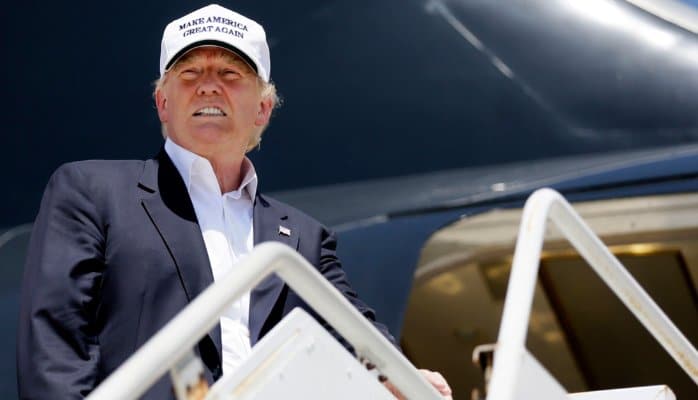EXECUTIVE SUMMARY
The 2016 US presidential election is the most consequential election for international order since the Second World War. America’s status as a liberal superpower is on the ballot. To understand Donald Trump’s foreign policy, we must distinguish between his three core beliefs that he has held for many decades and rarely if ever waivered from, the central themes of his campaign, and other issues. His core beliefs are opposition to America’s alliance arrangements, opposition to free trade, and support for authoritarianism, particularly in Russia. If he is elected president and governs in a manner consistent with these beliefs, the United States will be transformed from the leader of a liberal international order into a rogue superpower that withdraws from its international commitments, undermines the open global economy, and partners with Putin’s Russia. Hillary Clinton, by contrast, would be a president in the traditional internationalist mould. Every president is unique and different from their predecessors and she will be too. To understand her foreign policy, we should examine the emerging democratic critique of President Obama. This critique faults Obama for prioritising progress on global issues over regional disorder. It recommends a modest shift in US foreign policy towards what might be termed ‘geopolitical regionalism’, whereby the United States re-engages with its traditional allies and seeks to bolster regional order in East Asia, Europe, and the Middle East. Even if Clinton wins, the 2016 election has raised real doubts about the future of American internationalism. Clinton’s toughest task will be to re-convince the American people as to the merits of increased US engagement to strengthen both the security and economic components of the liberal international order.
THE 2016 PRESIDENTIAL CAMPAIGN AND THE CRISIS OF US FOREIGN POLICY
The US presidential election of 2016 is the most important American election since 1860, when Abraham Lincoln became president. It is also the most important for world order since the Second World War. For 70 years, the United States has led and sustained a liberal international order. Every president has had a foreign policy consistent with this broad objective. What makes 2016 especially significant is that for the first time one of the two major party nominees for the presidency, Donald Trump, is campaigning on a platform of weakening the core elements of the international order, including the US alliance system and an open global economy. He promises instead to partner with Russia to fight Islamic State and to create a mercantilist economic system where the United States uses tariffs and economic leverage to exact favourable terms of trade. The overall effect of Trumpism would be to transform the United States from a leader of the liberal international order to a rogue superpower. Trump’s surprising rise and endurance has shocked the US political establishment and the rest of the world. It is widely believed that a Trump presidency would likely lead to a series of rolling international crises as major powers adjust to life after American hegemony. The day after a Trump victory, allies would have to plan for the withdrawal of US security guarantees, rivals would look for ways to exploit the shift in US strategy, and markets would be rocked by the prospect of a new era of protectionism. The United States could also be hit by seismic domestic crises, including in civil-military relations and between Congress and the executive branch. Even if Trump loses, this election has raised real doubts about whether the United States will remain willing to serve as a liberal superpower on the world stage. For the first time since the Second World War, a sizeable number of Americans have shown themselves to be receptive to a message of isolationism. Perhaps a nationalist who is politically savvier and of sounder mind could succeed where Trump had failed. Perhaps the rising tide of nationalism will constrain future administrations. The furore around Trump’s candidacy has also crowded out analysis of the foreign policy of the person most likely to become the 45th president of the United States. Hillary Clinton is one of the most famous people on the planet. She has served as President Barack Obama’s Secretary of State, as a Senator from New York, and as First Lady of the United States. She is, by all accounts, a traditional liberal internationalist who believes strongly in American exceptionalism and in maintaining a US-led liberal order. It is difficult to ascertain from her campaign statements how she would differ from President Obama since she has a political incentive not to draw clear contrasts with him. However, there is an emerging democratic critique of Obama’s foreign policy that is consistent with Clinton’s record and may well be the path she chooses if she is elected president. In essence there would be a shift in emphasis away from …this election has raised real doubts about whether the United States will remain willing to serve as a liberal superpower on the world stage.
Read more of this comprehensive article Thomas Wright wrote for the Lowy Institute

To book Thomas Wright for your next conference, email [email protected]










